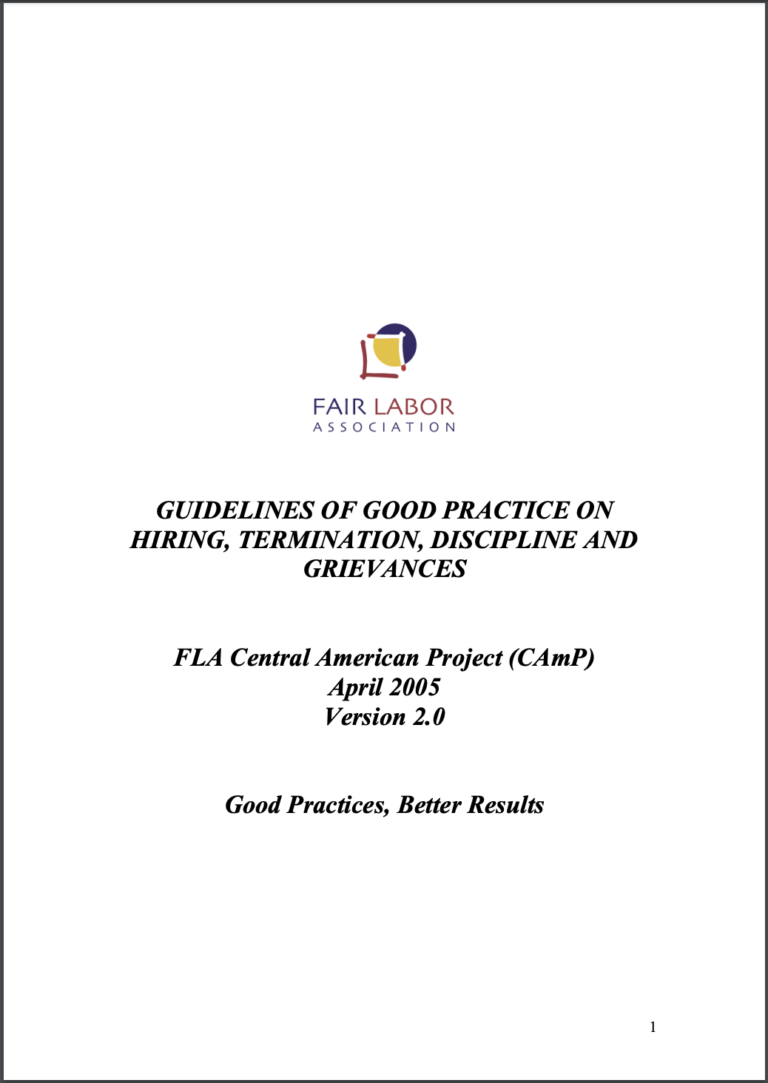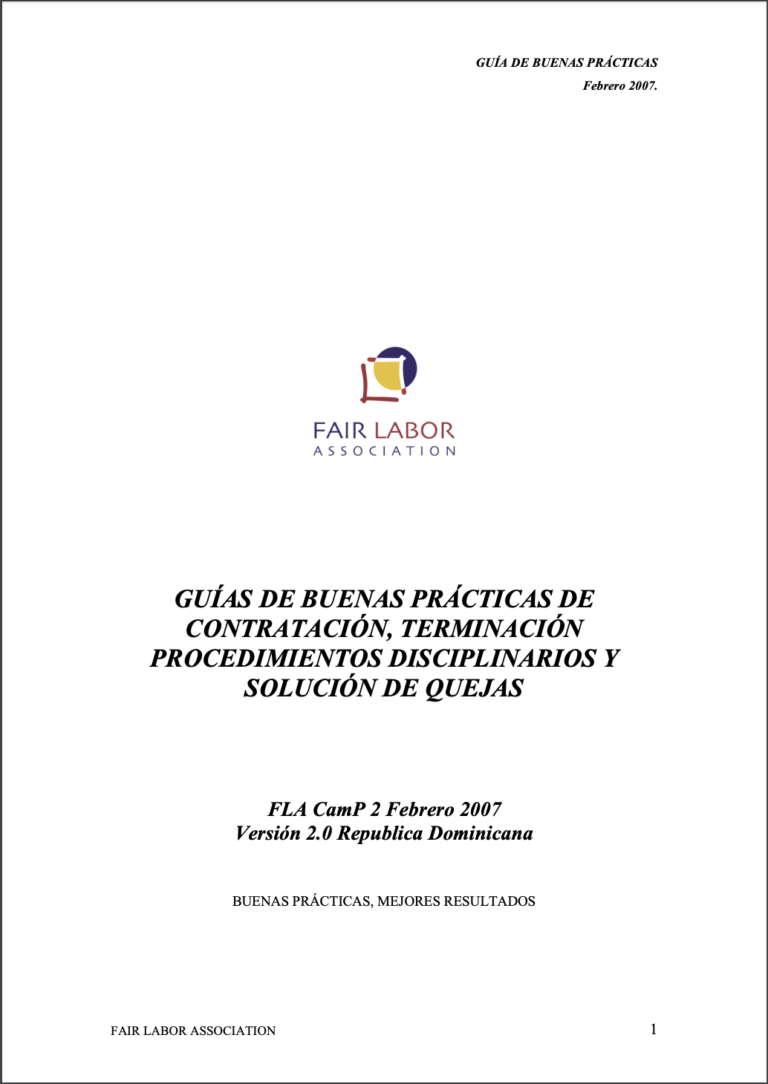These guidelines are part of Fair Labor Associations’s (FLA) Central America Project. The Central America Project was launched in collaboration with FLA Participating Companies- including Adidas Group, Nike, Inc., Gildan, Liz Claiborne, and PVH Corp.- to develop long-lasting mechanisms and tools to produce measurable improvements in workplace conditions in El Salvador, Guatemala, and Honduras. The project primarily focused on the issues of discrimination, harassment and abuse, and freedom of association in the apparel assembly or maquila sector. Several civil society organizations and trade associations such as VESTEX (the apparel exporters association in Guatemala) and ministries of labor in the region participated in the project, which was funded by FLA with a grant from the U.S. State Department.
The objective of these guidelines is to guard against discrimination and harassment and abuse and promote respect for freedom of association. These guidelines- utilized by zone authorities, participating factories, Ministry of Labor personnel, and staff from participating companies– helped to create awareness among factory management of the benefits of positive labor relations. In addition, the project helped to create an understanding of the long-term benefits of providing resources and tools to a factory base close to the U.S. that has a demonstrable commitment to improved workplace conditions.
A 2007 version of the same guidelines is available in Spanish (see below).


